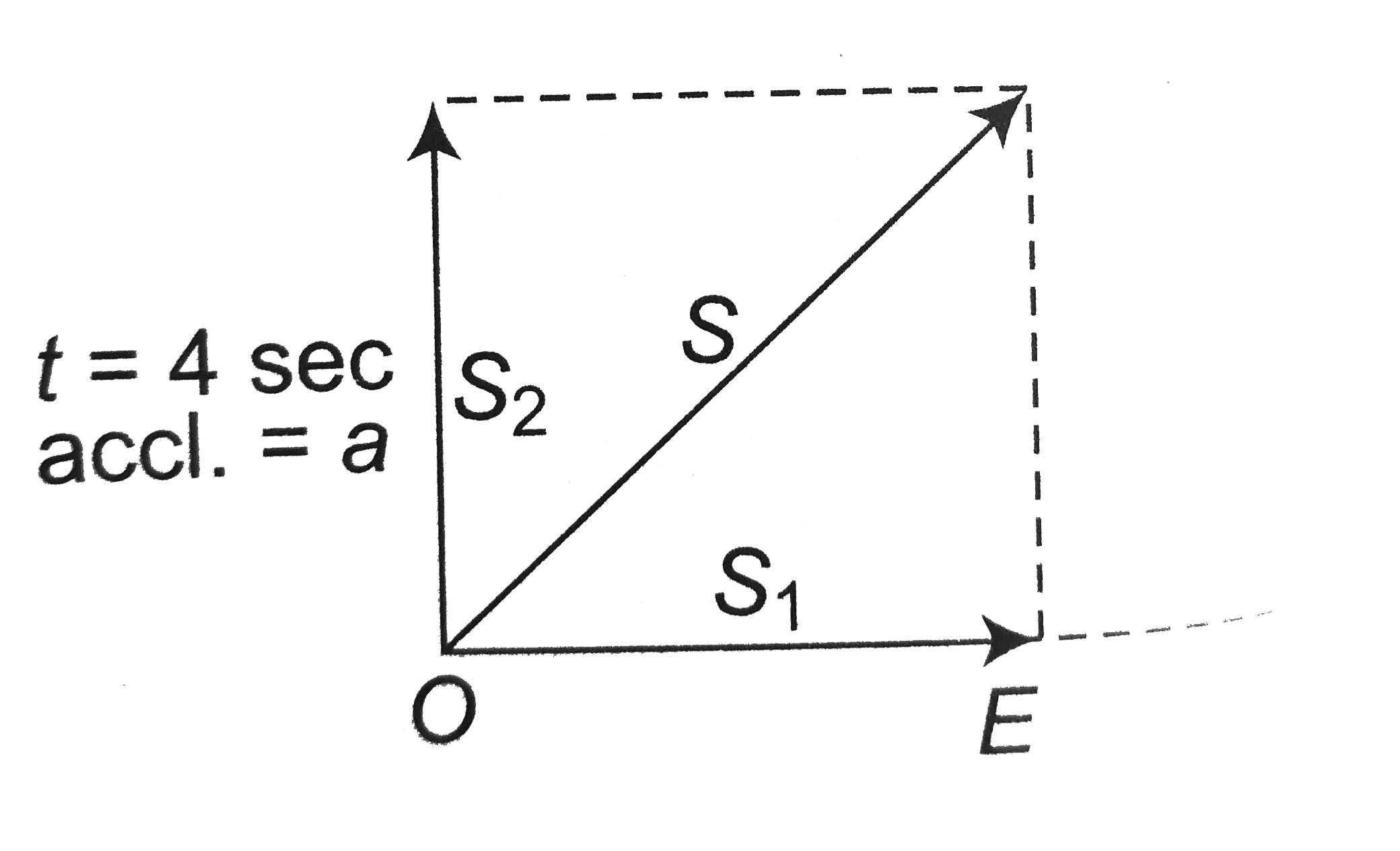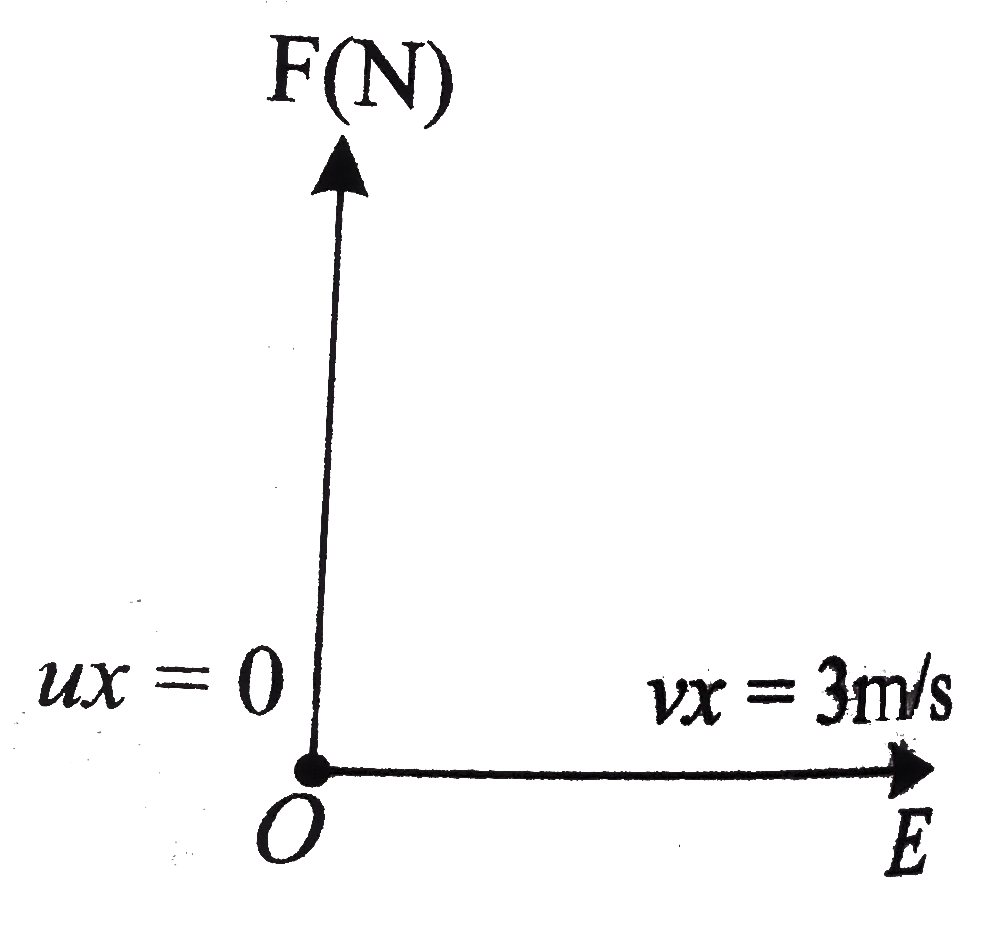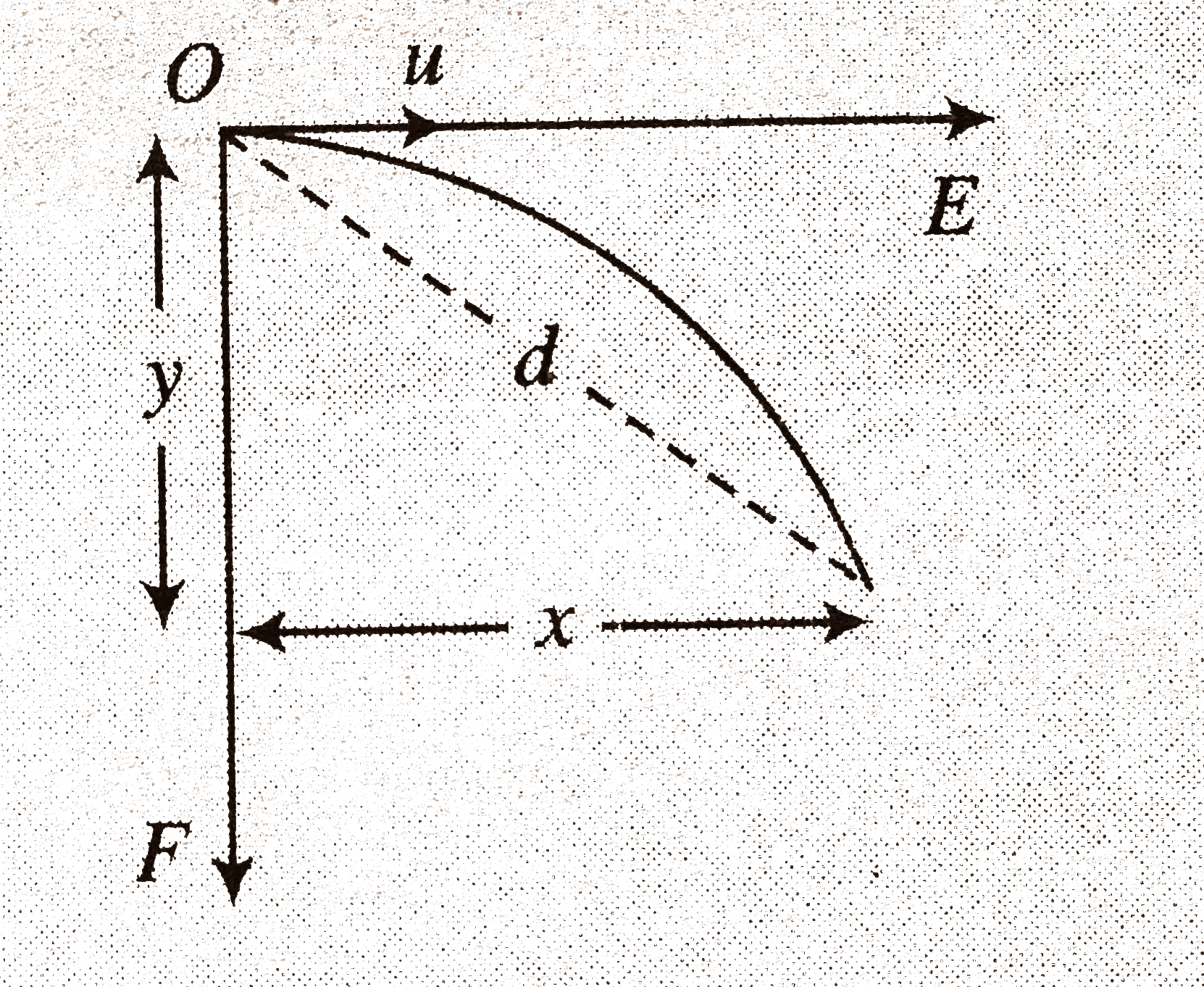A body mass 2kg has an initial velocity of 3 metre//sec along OE and it is subject to a force of 4N in a direction perpendicular to OE. The distance of body from O after 4 sec will be:

12 m
20 m
8 m
48 m
The correct Answer is:B

Displacement of body in 4 sec
along OE
sx=vxt=3×4=12m
Force along OF (perpendicular to OE)=4N
ay=Fm=42=2ms2
Displacement of body in 4 sec along OF
⇒sy=uyt+12ayt2=12×2×(4)2=16m
Net displacement s=√s2x+s2y=√(12)2+(16)2=20m
Topper's Solved these Questions
- CENGAGE PHYSICS DPPBook:CENGAGE PHYSICSChapter:CENGAGE PHYSICS DPPExercise:Fill in the blanks type
Explore 26 Videos
- CENGAGE PHYSICS DPPBook:CENGAGE PHYSICSChapter:CENGAGE PHYSICS DPPExercise:Comprehension Type
Explore 31 Videos
- CENGAGE PHYSICS DPPBook:CENGAGE PHYSICSChapter:CENGAGE PHYSICS DPPExercise:Multiple Correct Answer Type
Explore 54 Videos
- CAPACITOR AND CAPACITANCEBook:CENGAGE PHYSICSChapter:CAPACITOR AND CAPACITANCEExercise:Integer
Explore 5 Videos
- CENTRE OF MASS CONVERSATION OF MOMENTUM AND COLLISIONBook:CENGAGE PHYSICSChapter:CENTRE OF MASS CONVERSATION OF MOMENTUM AND COLLISIONExercise:Question Bank
Explore 38 Videos
Similar Questions
A body of mass 2kg has an initial velocity of 3ms−1 along OE and it is subjected to a force of 4N in OF direction perpendicular to OE. Find the distance of the body from O after 4s.
 .
.
View SolutionA body of mass 5 kg initially at rest is subject to a force of 20 N. What is the kinetic energy acquired by the body at the end of 10 s ?
View Solution
Knowledge Check
Assertion : A body of mass 4 kg has an initial velocity 5ˆims−1. It is subjected to a force of 4ˆjN. The displacement of body from origin after 4 s will be 21.5m.
Reason : The equation v=u+at can be applied to obtain v if a is constant.AIf both Assertion and Reason are correct and Reason is the correct explanation of assertion.BIf both Assertion and Reason are correct but Reason in not the correct explanation of Assertion.CIf Assertion is true but Reason is false.DIf Assertion is false but Reason is true.A body is moving with a velocity 5m/s along a striaght line.A force of 10N is applied to the body perpendicular to the line of motion. If the body is of mass 2kg, then the acceleration of the body along the initial straight line of motion is :
A5m/s2B0C10m/s2Dnone of theseA body has an initial velocity of 3m/s and has an acceleration of 1m/sec2 normal to the direction of the initial velocity. Then its velocity 4 seconds after the start is
A7m/sec along the direction of initial velocityB7m/sec along the normal to the direction of initial velocityC7m/sec mid-way between the two directionsD5m/sec at an angle of tan−1(4/3) with the direction of initial velocity.
A body of mass 2 kg is moving along x-direction with a velocity of 2 m/sec. If a force of 4 N is applied on it along y-direction for 1 sec, the final velocity of particle willbe-
View SolutionA body of mass 2kg moving with a velocity of 10m/s is brought to rest in 5sec. Calculate the stopping force applied.
View SolutionA body of mass 5kg initially at rest, is subjected to a force of 40 N. Find the kinetic energy acquired by the body at the end of 5 seconds :
View SolutionA body has an initial velocity of 3ms−1 and has an acceleration of 1ms−2 normal to the direction of the initial velocity. Then its velocity 4s after the start is.
View SolutionA body of mass 2 kg moving with a velocity of 3 m/sec collides head on with a body of mass 1 kg moving in opposite direction with a velocity of 4 m/sec. After collision, two bodies stick together and move with a common velocity which in m/sec is equal to
View Solution

